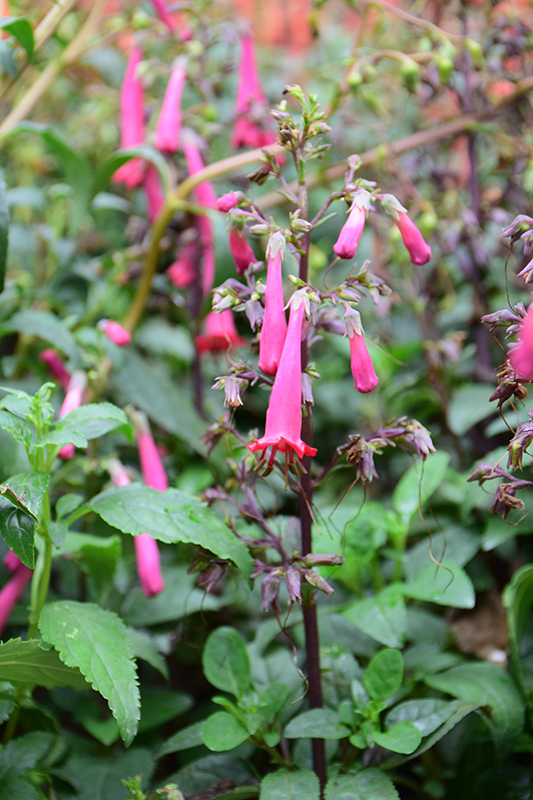COLORBURST™ Rose Cape Fuchsia
Description
An easy-care variety, presenting showy clusters of dangling, rose pink tubular flowers; a sensational show from midsummer into fall; great along borders or in containers; may remain evergreen in mild winter regions
Landscape Attributes
COLORBURST™ Rose Cape Fuchsia is a dense multi-stemmed evergreen perennial with an upright spreading habit of growth. Its medium texture blends into the garden, but can always be balanced by a couple of finer or coarser plants for an effective composition.
COLORBURST™ Rose Cape Fuchsia is recommended for the following landscape applications;
Planting & Growing
COLORBURST™ Rose Cape Fuchsia will grow to be about 30 inches tall at maturity, with a spread of 3 feet. Although it is technically a woody plant, this plant can be expected to behave as a perennial in our climate if planted outdoors over the winter, usually regrowing from its base (crown) the following year. As such, gardeners should take into consideration that it will perform differently than it would in its native habitat.
This plant does best in full sun to partial shade. It does best in average to evenly moist conditions, but will not tolerate standing water. It is not particular as to soil pH, but grows best in rich soils. It is somewhat tolerant of urban pollution. Consider applying a thick mulch around the root zone in winter to protect it in exposed locations or colder microclimates. This particular variety is an interspecific hybrid.
COLORBURST™ Rose Cape Fuchsia is a fine choice for the garden, but it is also a good selection for planting in outdoor pots and containers. With its upright habit of growth, it is best suited for use as a 'thriller' in the 'spiller-thriller-filler' container combination; plant it near the center of the pot, surrounded by smaller plants and those that spill over the edges. It is even sizeable enough that it can be grown alone in a suitable container. Note that when growing plants in outdoor containers and baskets, they may require more frequent waterings than they would in the yard or garden. Be aware that in our climate, this plant may be too tender to survive the winter if left outdoors in a container. Contact our experts for more information on how to protect it over the winter months.

